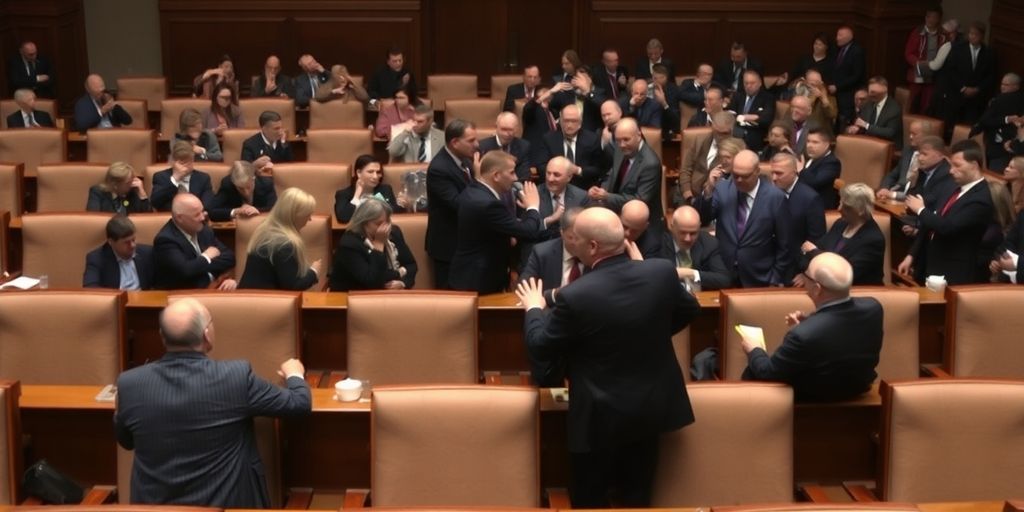Kosovo’s political landscape remains in turmoil as the parliament failed to elect a new speaker for the fourth consecutive time on April 25, 2025. This ongoing stalemate has stalled the formation of a new government, leaving the country in a legislative crisis more than two months after inconclusive elections.
Key Takeaways
- Kosovo’s parliament has failed to elect a speaker four times, prolonging a political crisis.
- The ruling party, Vetevendosje, lacks the majority needed to form a government.
- Opposition parties refuse to support the current nominee, Albulena Haxhiu.
- A snap election may be on the horizon if the deadlock continues.
Background of the Crisis
The political deadlock in Kosovo stems from the February 9 parliamentary elections, where Albin Kurti’s Vetevendosje party emerged as the largest faction but fell short of the 61 seats required for a majority in the 120-member assembly. Vetevendosje secured 48 seats, while the opposition parties, including the Democratic Party of Kosovo (DPK) and the Democratic League of Kosovo (LDK), have refused to form a coalition with them.
The failure to elect a speaker is critical because, according to Kosovo’s constitution, the speaker must be in place before the winning party can form a government. The current nominee, Albulena Haxhiu, has consistently received only 57 votes, four short of the necessary majority.
Political Dynamics at Play
The political landscape in Kosovo is characterized by deep divisions, particularly between the ruling party and the opposition. The opposition has accused Kurti of exacerbating tensions, particularly in the Serb-majority northern regions, which has hindered Kosovo’s aspirations for European Union membership and led to sanctions from the bloc.
- Opposition Stance: The DPK and LDK have made it clear that they will not support Haxhiu’s candidacy, citing her controversial political history and decisions that have alienated various groups within Kosovo.
- Vetevendosje’s Position: Despite the opposition’s refusal to back Haxhiu, Vetevendosje remains steadfast in its nomination, insisting on her qualifications and the need for female representation in leadership roles.
Potential Outcomes
As the political stalemate continues, several scenarios could unfold:
- Continued Deadlock: If the parliament remains unable to elect a speaker, Kosovo could face a prolonged period without a functioning government.
- Snap Elections: Analysts suggest that if no agreement is reached, the president may call for snap elections, which could reshape the political landscape once again.
- Coalition Talks: There is a possibility that Vetevendosje may need to reconsider its candidate to gain the necessary support from opposition parties, although this remains unlikely given the current tensions.
Conclusion
The ongoing political crisis in Kosovo highlights the challenges of governance in a deeply divided society. With the parliament unable to elect a speaker, the future of Kosovo’s political stability hangs in the balance. As the situation develops, the potential for snap elections looms, which could either resolve the deadlock or further complicate the political landscape.
Sources
- Kosovo in political stalemate as parliament fails to elect speaker, Reuters.
- Kosovo without a majority three months after the elections, NIN.rs.
- Kosovo Hits Political Deadlock as Parliament Session Collapses, Bloomberg.com.
- Stalemate Continues as Kosovo MPs Fail to Elect Parliament Speaker, Prishtina Insight.






